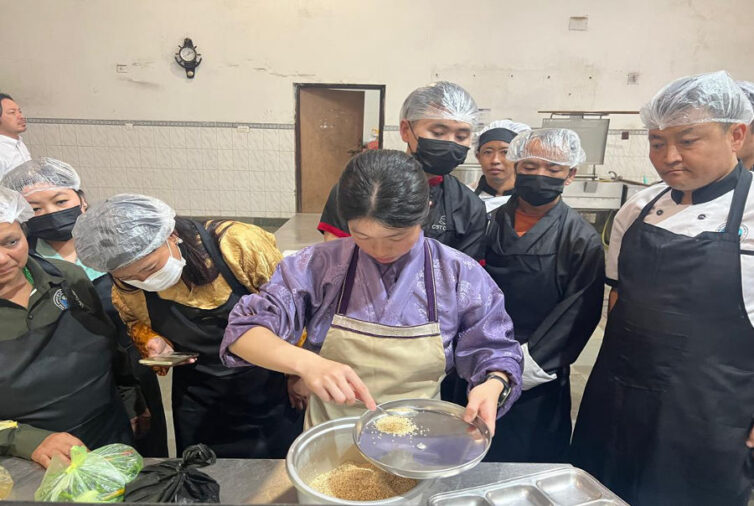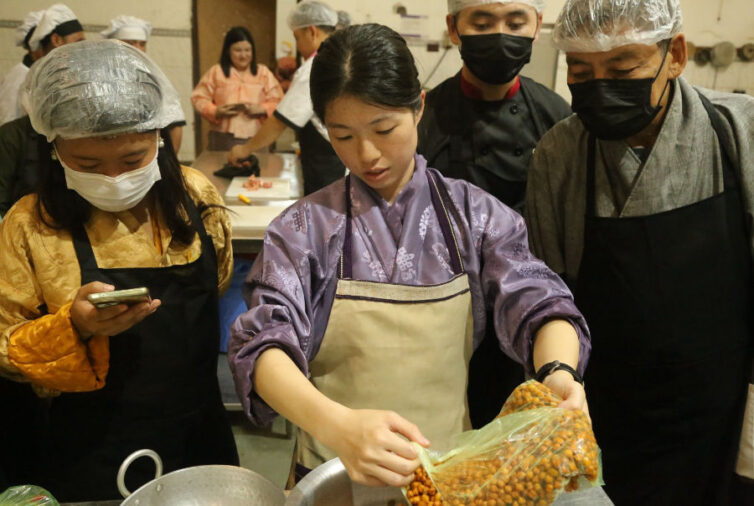 In a move to make school meals healthier and more nutritious, cooks and mess in-charges from schools and colleges in Chhukha came together at the College of Science and Technology recently. The training not only equipped them with practical skills but also raised awareness on food security and nutrition.
In a move to make school meals healthier and more nutritious, cooks and mess in-charges from schools and colleges in Chhukha came together at the College of Science and Technology recently. The training not only equipped them with practical skills but also raised awareness on food security and nutrition.
The training is aimed at enhancing skills in preparing nutritious meals while also improving institutional food planning.
Officials from the Department of Agriculture stressed the importance of food safety, sustainable food production, and balanced nutrition in schools and institutions.

Participants were not only given theoretical insights but also hands-on experience in preparing balanced and nutritious meals.
“Aside from preparation, a balanced diet and nutritious food planning are very important. This is important not just at schools and institutions but also at individual homes. One should plan what to eat and prepare a variety of nutritious food,” said Pema Gyalpo, Secretary, Japan Alumni Association of Bhutan.
“Bhutanese food is delicious, but it will be better if more vegetables are added. Bhutanese should take more protein, like milk and soya. It is important to take a variety of food and more vegetables,” said Minori Ohira, Nutrition Expert and Japan Overseas Cooperation Volunteer.
“We were not aware of how important it is to prepare nutritious food. Also, we knew very little about eating a variety of healthy foods and the importance of food preparation. But this training came like a light in the darkness; we got lots of knowledge,” said Kinley Wangchuk, Cook, College of Science and Technology, Phuentshogling.
The participants were trained in preparing meals using local vegetables and meat, focusing on proper food handling, preparation techniques and institutional meal planning strategies.
The Japan Alumni Association of Bhutan initiated the training in collaboration with the Ministry of Health, the College of Science and Technology, and the Japan International Cooperation Agency.
Kinley Dem, Chhukha
Edited by Sonam Pem







